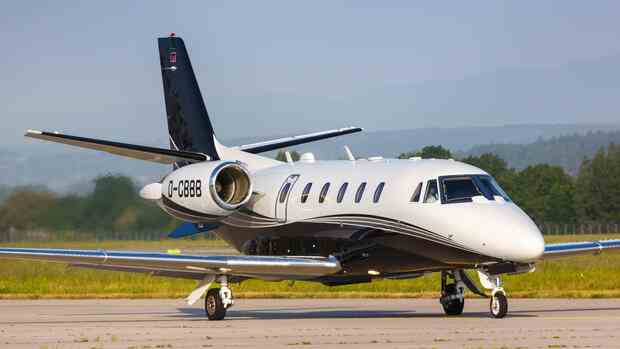The pandemic has sharply increased the demand for flights in your own aircraft. Environmentalists and activists denounce this.
(Photo: imago images/CHROMORANGE)
For months, there has been criticism of the users and owners of private aircraft. Not for the first time, but all the more violently, environmental groups and climate activists have planned to fly in the small planes.
Their allegations are not unfounded, they have a lot of facts on their side. People are flying their own aircraft more often than ever before. Also, no one will deny that an optimally filled short- or medium-haul commercial aircraft releases significantly fewer emissions per passenger into the atmosphere than the private jet.
But the emotional debate has long since reached politics. In France, a few months ago, this even led to considerations of banning certain short-haul flights. However, proposals like this will hardly help the climate. Apart from that, that would be a serious interference in the free economy and hardly enforceable.
There are better options – also of a regulatory nature. Why not tax flights with a private plane at a flat rate? Why not stipulate that so-called emission rights certificates must be purchased commercially for every private or business flight?
Starting the engines of the Learjet, for example, would be significantly more expensive. Entrepreneurs and managers who depend on the plane would do it anyway. Others, who just don’t want to do without the comfort of their own machine, might start thinking.
Photovoltaic systems for smaller airports
In addition, politicians could cleverly use the willingness of many entrepreneurs to invest heavily in their own fleet and the necessary infrastructure for their climate goals. The construction of photovoltaic systems on the open spaces of the smaller airports could be simplified in terms of building law and perhaps also promoted, as could the production of synthetic fuel with the energy generated there.
It is clear that innovations such as flying with electricity will first be tested in small aircraft. So why not specifically promote all those projects that deal with the electrification of private aircraft? The experiences made here could be helpful in developing the commercial airliner of the future.
In any case, the pressure on entrepreneurs and managers to sit in their own plane as little as possible is growing. After all, such business trips don’t look particularly good given the increasingly important climate footprint of companies. So there is no need for public pillory.
More: Decarbonization: Sustainable kerosene is supposed to make aviation greener – but it has its pitfalls
